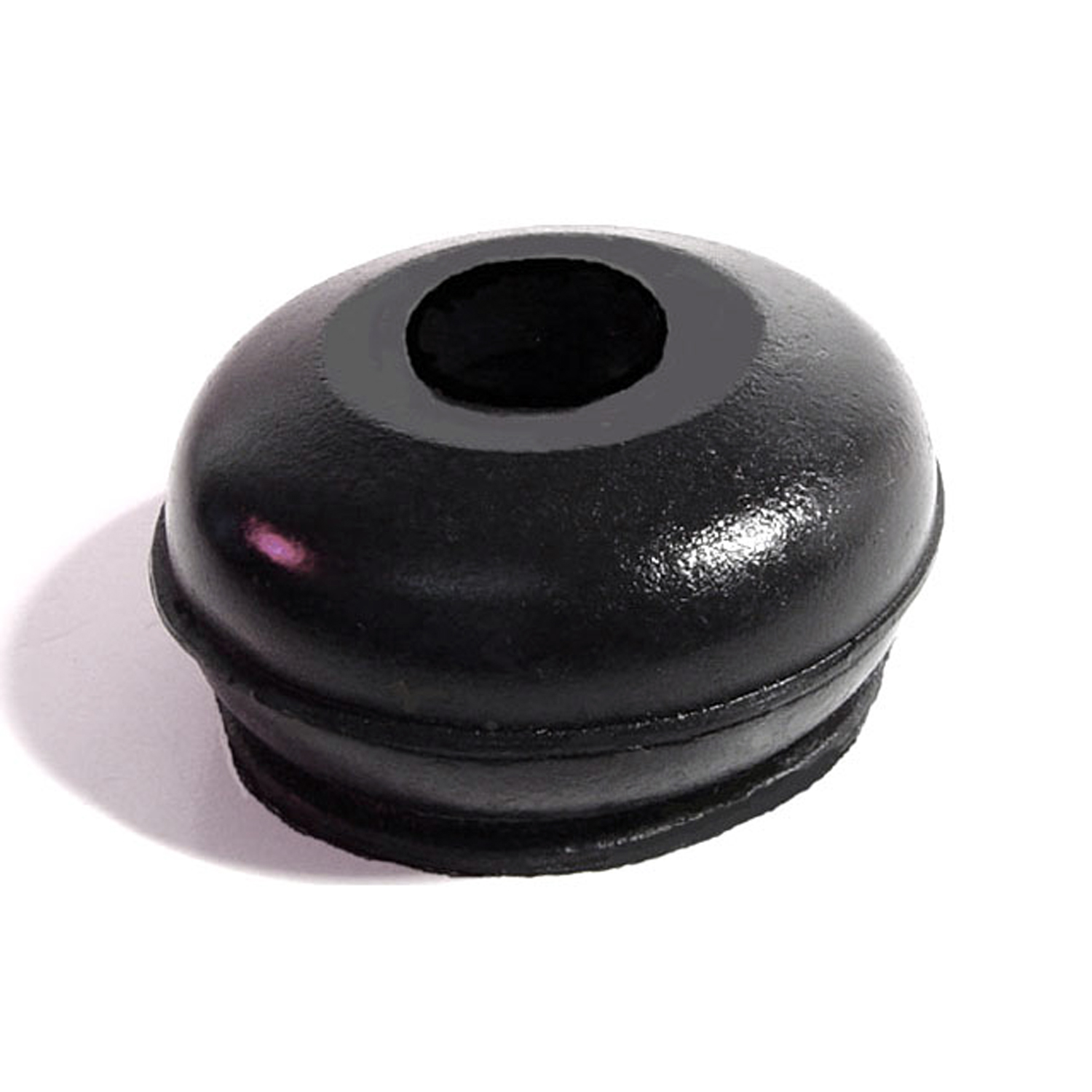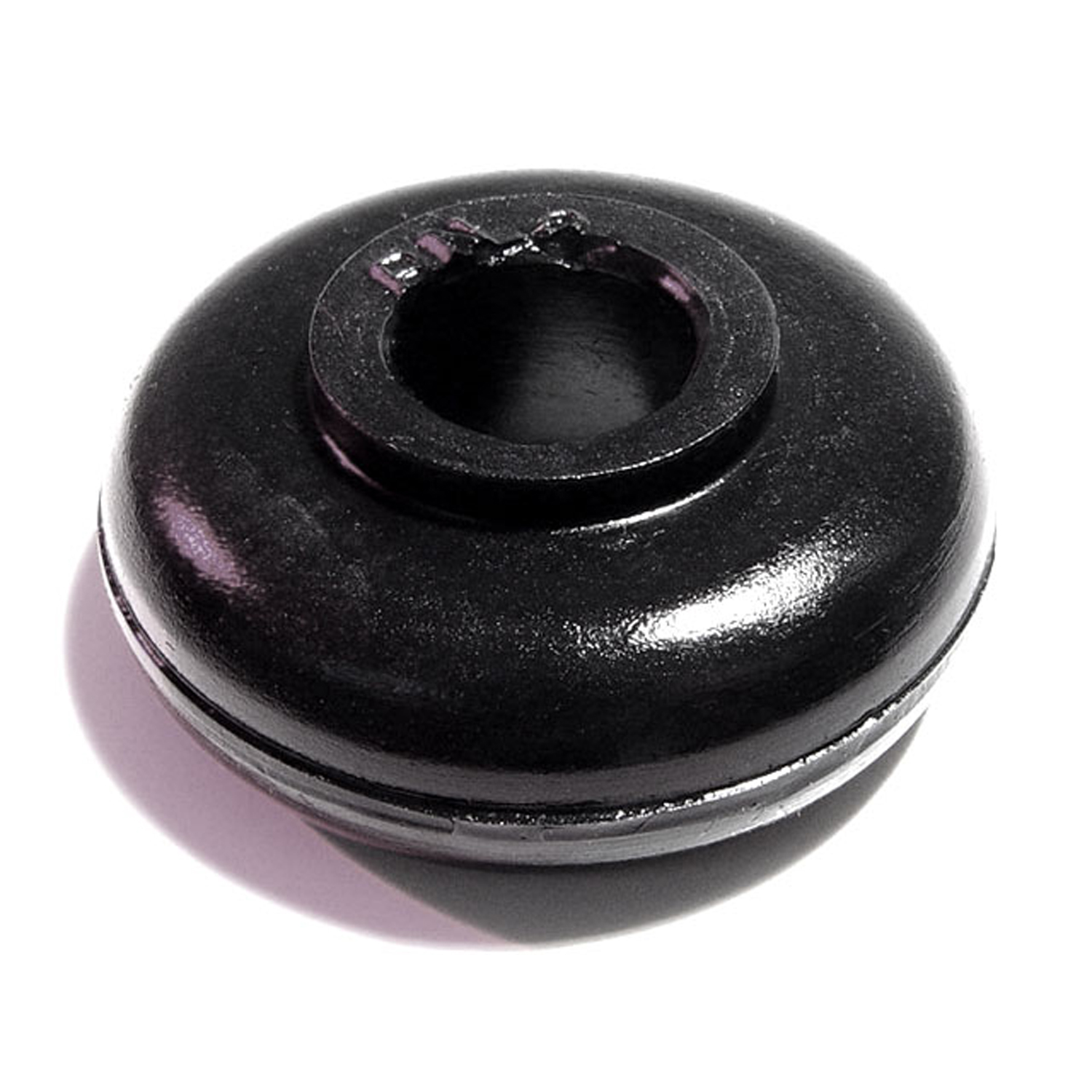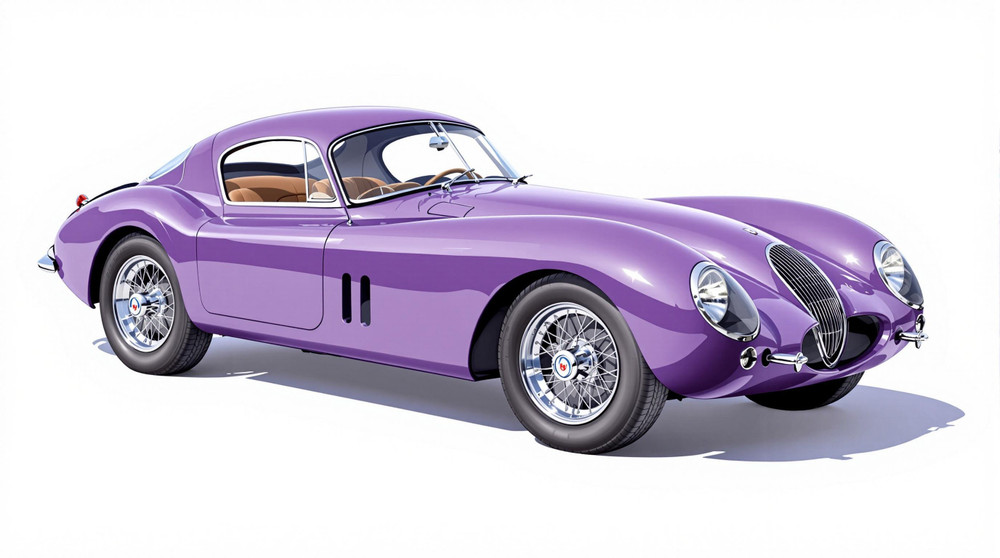Image of 1953 Jaguar C-Type, Note: These illustrations use artistic license and may differ from actual historical models.
Performance Metrics
Fundamental Metrics
Emotional Appeal
MMP Rating
| Engine Specifications | |
|---|---|
| Engine: | 3.4L DOHC Inline 6 |
| Displacement: | 3442 cc |
| Horsepower: | 220 hp |
| Torque: | 210 lb-ft |
| Compression Ratio: | 8.0:1 |
| Ignition System: | Twin Magneto |
| Cooling System: | Water-cooled |
| Performance Specifications | |
| 0-60 Time: | 8.0 seconds |
| 1/4 Mile Time: | 16.0 seconds |
| Top Speed: | 140 mph |
| Transmission and Drive | |
| Drive Type: | Rear Wheel Drive |
| Transmission Type: | 4-speed manual |
| Fuel and Efficiency | |
| Fuel System Type: | Triple SU carburetors |
| MPG: | Estimated 15-20 mpg |
| Dimensions and Brakes | |
| Brakes: | Hydraulic drum brakes |
| Wheelbase: | 96 inches |
| Weight: | 2100 lbs |
Note: Specifications for classic cars are given to the best of our ability, considering the limited and variant data available.
Unveiling the 1953 Jaguar C-Type: A Racing Icon Reborn
The 1953 Jaguar C-Type not only captured the imagination of post-war Britain but also left an indelible mark on the racing world. Born from the ambition of Jaguar Cars, a manufacturer already renowned for its elegant designs and engineering prowess, the C-Type emerged as a purpose-built racer that would redefine performance benchmarks. Its unique blend of speed, style, and innovation cemented its place in automotive history, with a notable victory at the Le Mans 24 Hours race serving as a testament to its prowess.
Design and Innovation: A Symphony of Form and Function
The exterior of the Jaguar C-Type is a masterclass in aerodynamics, with its fluid lines and low-slung profile. Every curve was sculpted not just for visual appeal but to slice through the air with minimal resistance. The interior was spartan yet functional, reflecting its racing intent, with high-quality leather and aluminum accents hinting at luxury amidst the vehicle's competitive nature. Technologically advanced for its time, it featured innovations such as disc brakes, which were a novelty and contributed to its racing dominance.
While color options were limited during its production run, British Racing Green became synonymous with the C-Type, capturing the spirit of motorsport in that era. The roadster body style was the quintessential choice for buyers seeking both thrills on the track and admiration on the streets.
Historical Significance: A Legacy Cast in Aluminum and Victory
The Jaguar C-Type's impact went beyond mere aesthetics; it was a harbinger of technological advancements that would trickle down to consumer vehicles. Its introduction of disc brakes revolutionized automotive safety and performance. The car's success at Le Mans showcased not only speed but also reliability—a combination that would inspire generations of sports cars.
Performance and Handling: The Heartbeat of a Champion
With a top speed approaching 140 mph and an acceleration time from 0-60 mph in approximately 8 seconds, the C-Type was a formidable force in motorsport. Its handling characteristics were equally impressive; it tackled corners with poise and responded eagerly to driver inputs. Behind the wheel, one could hear the roar of its 3.4-liter straight-six engine—a symphony for any motoring enthusiast—while feeling every nuance of the road through its responsive steering.
Ownership Experience: More Than Just a Collector's Piece
The C-Type was not merely relegated to weekend displays; it was driven hard on racetracks and enjoyed on open roads by those fortunate enough to possess one. Maintenance requires a knowledgeable hand, as parts are scarce and expertise is essential for preserving this classic's integrity. Yet, for those dedicated to its upkeep, ownership is an unrivaled experience.
Fun Facts: Trivia That Fuels Legends
Rarity adds to the allure of the C-Type; only 53 units were produced, making each one highly coveted. Celebrity enthusiasts have been drawn to its charm, adding to its storied reputation. While criticisms were few, some pointed out its focus on performance compromised some creature comforts—a negligible trade-off for most admirers.
Collector's Information: A Blue-Chip Investment
In today's market, a well-preserved Jaguar C-Type can command prices well into seven figures, reflecting both its rarity and desirability among collectors. As an investment piece, it has shown appreciating value over time—a trend likely to continue given its iconic status.
Conclusion: The Enduring Allure of the Jaguar C-Type
The 1953 Jaguar C-Type stands as a monument to innovation, performance, and design elegance—an enduring legacy that continues to captivate enthusiasts around the globe. It is more than just a classic car; it is a piece of history that continues to race through the hearts of those who appreciate automotive excellence.
1953 Jaguar C-Type Catalog of Parts
 1953 Jaguar C-Type Upper and Lower Ball Joint Boot. 5/8" upper I.D-BN 101-AUpper and Lower Ball Joint Boot. 5/8" upper I.D., 1-1/2" bottom I.D., 7/8" high. Each
1953 Jaguar C-Type Upper and Lower Ball Joint Boot. 5/8" upper I.D-BN 101-AUpper and Lower Ball Joint Boot. 5/8" upper I.D., 1-1/2" bottom I.D., 7/8" high. Each 1953 Jaguar C-Type Roll Bar Bushing. 1/2" high, with 1/2" hole. Each-BN 2Roll Bar Bushing. 1/2" high, with 1/2" hole. Each
1953 Jaguar C-Type Roll Bar Bushing. 1/2" high, with 1/2" hole. Each-BN 2Roll Bar Bushing. 1/2" high, with 1/2" hole. Each 1953 Jaguar C-Type Auto Brake Pedal Pad. 3-1/4" wide X 5-1/2" long. Each-CB 75-BAuto Brake Pedal Pad. 3-1/4" wide X 5-1/2" long. Each
1953 Jaguar C-Type Auto Brake Pedal Pad. 3-1/4" wide X 5-1/2" long. Each-CB 75-BAuto Brake Pedal Pad. 3-1/4" wide X 5-1/2" long. Each 1953 Jaguar C-Type Spark plug wire boot. Exclusive Metro part-RP 1-KSpark plug wire boot. Exclusive Metro part. Fits on the distributor cap end. Note: looks similar to coil boot, but is physically smaller. Replaces OEM# CO 2609. Each.
1953 Jaguar C-Type Spark plug wire boot. Exclusive Metro part-RP 1-KSpark plug wire boot. Exclusive Metro part. Fits on the distributor cap end. Note: looks similar to coil boot, but is physically smaller. Replaces OEM# CO 2609. Each.Why Choose Metro?
For over 100 years, Metro Moulded Parts has been the pinnacle of quality in classic car restoration parts. Our commitment to precision and authenticity in every component ensures a perfect fit and an OEM-level appearance.
- Expert Craftsmanship & Quality: Each part is a testament to our dedication to reliability and perfection, crafted from original designs and thoroughly tested.
- Advanced Technology: We use cutting-edge techniques to create flawless, long-lasting parts that surpass others in performance.
- SuperSoft Sponge – The Ultimate Door Seal: Not only are our door seals 30% softer than competitors', but they're also guaranteed to never leak. They effectively reduce wind and road noise, enhancing your classic car's comfort and driving experience.
- Proudly American: Our parts are a product of American craftsmanship, made in the USA with a spirit of excellence and heritage.
- Unrivaled Warranty: We back our products with a 30-year industry-leading warranty, a testament to our confidence in their quality.
Join us in preserving the legacy of classic cars with parts that are crafted for perfection, not just made.

